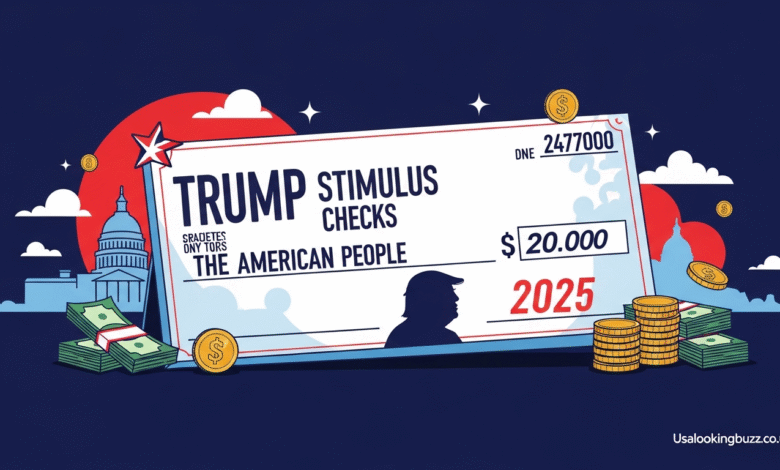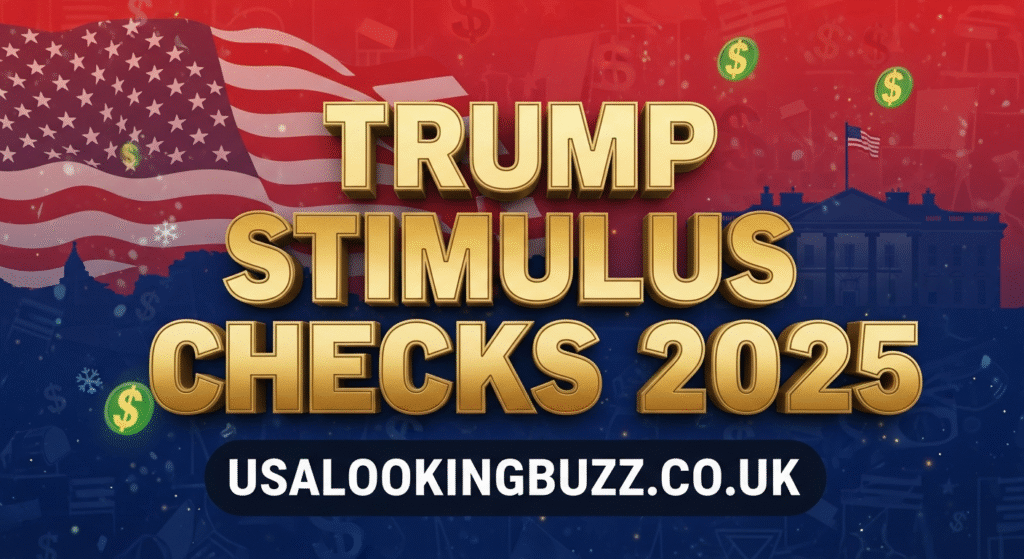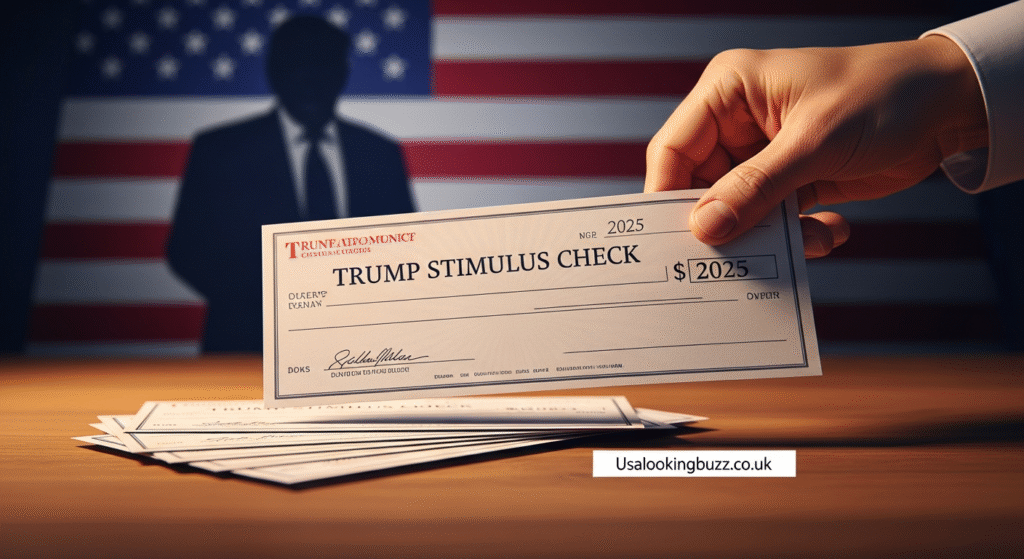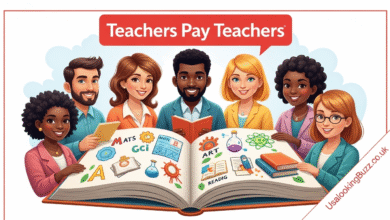Trump Stimulus Checks 2025: Truth Behind New Payment Claims

Introduction
Your social media feed is probably buzzing with posts about Trump stimulus checks 2025. You’ve seen the headlines, the videos, and maybe even received texts claiming new payments are coming. Your bank account could certainly use a boost, so naturally you’re wondering if these claims are legitimate or just another round of internet rumors.
The confusion is completely understandable. Since President Trump returned to office in January 2025, speculation about new stimulus payments has exploded online. Some websites claim checks are already being distributed. Others say applications are required. The information feels overwhelming and contradictory.
Here’s the reality: understanding what’s actually happening with Trump stimulus checks 2025 requires cutting through layers of misinformation, political rhetoric, and wishful thinking. This article will give you the facts you need. You’ll learn what the current administration has actually proposed, what Congress is considering, and how to protect yourself from scams targeting people hoping for financial relief. We’ll separate truth from fiction so you can make informed decisions about your finances.
The Current State of Stimulus Discussions
Let’s start with what’s actually happening in Washington right now. As of November 2025, there are no approved Trump stimulus checks heading to American households. This is the most important fact to understand before we go any further.
President Trump has discussed various economic policies since taking office. Some of these proposals include tax cuts, economic relief measures, and support for specific industries. However, no legislation authorizing direct stimulus payments to individuals has passed through Congress yet.
The confusion stems from several sources. Campaign promises, policy discussions, and proposals get misrepresented as actual approved programs. Social media amplifies these misunderstandings, with posts claiming checks are imminent when no such program exists.
Congressional committees have held hearings about economic relief. Various lawmakers have proposed different forms of assistance. Some Republicans support targeted relief for specific groups. Some Democrats push for broader stimulus measures. None of these discussions have resulted in actual legislation that would put Trump stimulus checks 2025 into your bank account.
The legislative process takes time. Even if President Trump strongly supported new stimulus payments, Congress would need to draft legislation, hold votes in both chambers, and send a bill to his desk for signature. This process typically takes weeks or months, not days. You would hear about it through official government channels long before checks arrived.
Why the Rumors Keep Spreading
Understanding why false information about Trump stimulus checks 2025 spreads so rapidly helps you identify misinformation when you see it. Several factors contribute to this ongoing confusion.
Economic anxiety drives much of the speculation. Many Americans continue struggling with inflation, high housing costs, and everyday expenses. When people need financial help, they’re more likely to believe and share news about potential relief. Hope makes us vulnerable to misinformation.
Clickbait websites exploit this vulnerability. These sites generate revenue from advertising, so they create sensational headlines to drive traffic. “Trump Announces New $2000 Stimulus Checks” gets more clicks than “Congress Discusses Possible Economic Relief.” The accuracy matters less to them than the revenue.
Social media algorithms amplify engaging content regardless of accuracy. A post claiming stimulus checks are coming might get thousands of shares from hopeful people. The algorithm sees this engagement and promotes the post to even more users. Meanwhile, fact checks and corrections get far less attention.
Some content creators deliberately spread false information for political purposes. Making claims about stimulus checks can serve various agendas. Supporters might exaggerate proposals to make the administration look generous. Critics might spread false information to later discredit it and undermine trust.
The complexity of government processes creates confusion too. When officials discuss policy ideas, propose legislation, or hold committee hearings, these actions get misinterpreted as final decisions. Most people don’t follow the detailed legislative process, so preliminary discussions sound like done deals.
What Trump Has Actually Proposed
To understand the reality of Trump stimulus checks 2025, we need to examine what President Trump has actually said and proposed regarding economic relief for Americans.
The administration has focused heavily on tax policy rather than direct payments. Proposals have included extending previous tax cuts, reducing corporate tax rates, and eliminating taxes on certain types of income. These are very different from stimulus checks, though they’re sometimes conflated in media coverage.
President Trump has mentioned supporting “the economy” and “American workers” in numerous speeches. These general statements often get misinterpreted as specific promises of stimulus payments. Political rhetoric doesn’t equal policy implementation.
Some administration officials have discussed targeted relief for specific groups. Ideas have included support for farmers, small business owners, and industries affected by policy changes. These sector-specific proposals differ significantly from universal stimulus payments that everyone receives.
The president has expressed interest in economic growth measures that indirectly benefit Americans. Infrastructure spending, deregulation, and trade policies aim to create jobs and boost wages. These long-term economic strategies work differently than immediate cash payments.
It’s worth noting that Trump supported stimulus payments during his previous term. The CARES Act in 2020 included Economic Impact Payments that many people still remember. However, those payments happened during an unprecedented global pandemic. The economic circumstances in 2025 are different, and different circumstances call for different policy responses.
Congressional Reality Check
Even if President Trump wanted to authorize Trump stimulus checks 2025 tomorrow, he couldn’t do it alone. Congress holds the power of the purse, and understanding congressional dynamics explains why new stimulus payments face significant hurdles.
The House and Senate both play crucial roles in any spending legislation. A bill authorizing stimulus payments would need to pass both chambers. Currently, there’s no consensus even within parties about whether new stimulus payments are necessary or appropriate.
Budget constraints present major challenges. The federal deficit and national debt have become central concerns for many lawmakers. Stimulus payments cost hundreds of billions of dollars. Finding agreement on spending that much money requires overcoming serious fiscal concerns.
Republicans generally favor tax cuts over direct payments. Many conservative lawmakers view stimulus checks as government overreach or inefficient policy. They typically prefer letting people keep more of their earnings through tax reduction rather than redistributing tax revenue.
Democrats often support relief measures but have different priorities. They might favor targeted payments to lower-income households, expanded social programs, or different forms of assistance entirely. Finding common ground between these approaches proves difficult.
The legislative calendar affects what’s possible too. Congress has limited time and must prioritize among competing demands. Budget negotiations, foreign policy issues, and other urgent matters compete for attention. Stimulus legislation requires substantial legislative bandwidth that may not be available.

How to Spot Stimulus Check Scams
The rumors about Trump stimulus checks 2025 have created perfect conditions for scammers. Protecting yourself requires knowing how to identify fraudulent claims and malicious schemes.
Legitimate government payments never require you to pay fees to receive them. If someone asks you to send money, provide payment information, or buy gift cards to “unlock” your stimulus check, it’s definitely a scam. The government never operates this way.
Official information comes from government websites ending in .gov. The IRS website (irs.gov) and treasury.gov are the only legitimate sources for payment information. If a website looks official but has a different domain, it’s attempting to deceive you.
You will never receive unsolicited calls, texts, or emails asking for personal information to process a stimulus payment. The IRS doesn’t initiate contact through these channels. They send official letters through postal mail. Any unexpected message claiming to be about stimulus checks should be viewed with extreme suspicion.
Pressure tactics indicate scams. Scammers create false urgency by claiming you must act immediately or lose your payment. They might say only limited spots are available or that the program closes soon. Legitimate government programs don’t operate on artificial deadlines designed to pressure you.
Grammar and spelling errors in official-looking communications often reveal scams. While everyone makes occasional typos, government correspondence goes through review processes. Messages riddled with mistakes probably didn’t come from actual government agencies.
Be wary of social media posts claiming insider knowledge. Posts saying “I just got my Trump stimulus check” or showing fake payment confirmations spread rapidly. These are typically fabricated to drive engagement or lead you to scam websites. Real payments would be widely reported by legitimate news organizations.
Previous Stimulus Payments: A Historical Look
Understanding past stimulus programs helps you evaluate claims about Trump stimulus checks 2025. Looking at history provides important context for current discussions.
The 2020 Economic Impact Payments represented the most recent large-scale stimulus program. The CARES Act authorized payments of up to $1,200 per adult and $500 per child. These payments went to most Americans based on income thresholds from tax returns.
A second round of payments came in December 2020. This time, eligible individuals received up to $600 per person. The income thresholds and qualification requirements were similar to the first round.
The American Rescue Plan in 2021 authorized a third payment. This provided up to $1,400 per person, including dependents. The income phase-outs were adjusted, affecting who qualified for full or partial payments.
These previous programs shared common characteristics. They required congressional approval through legislation. The IRS administered the payments using tax return information. Direct deposit allowed fast distribution to those with banking information on file. Paper checks went to others, taking longer to arrive.
The context for those payments mattered enormously. A global pandemic had shut down businesses and eliminated millions of jobs. Unemployment reached levels not seen since the Great Depression. The economic emergency justified extraordinary government intervention.
Today’s economic situation differs substantially. Unemployment remains relatively low. Businesses are open and operating. While many Americans face financial challenges from inflation and living costs, the circumstances don’t mirror the pandemic crisis. This context affects whether similar stimulus measures would gain support.
Economic Conditions and Relief Needs
Assessing whether Trump stimulus checks 2025 might become reality requires understanding current economic conditions and who actually needs relief.
Inflation has been a persistent challenge. While inflation rates have decreased from their peaks, prices remain significantly higher than a few years ago. Groceries, housing, and other essentials take bigger bites from household budgets. This creates real financial stress for many families.
Wage growth has occurred but hasn’t kept pace with inflation for everyone. Some workers have received raises, but others find their purchasing power diminished. The gap between income and expenses creates hardship, particularly for lower-income households.
The job market shows mixed signals. Overall unemployment remains low, suggesting a strong economy. However, certain sectors face challenges. Job quality matters too—many available positions don’t offer the wages or benefits workers need.
Housing affordability presents enormous challenges. Home prices and rents have increased dramatically in many markets. This forces families to spend unsustainable percentages of income on housing, leaving less for other necessities. Housing stress affects millions of Americans regardless of employment status.
Student loan debt continues burdening younger Americans. Despite various relief proposals and programs, many people carry significant educational debt that constrains their financial flexibility. This affects their ability to save, buy homes, or weather unexpected expenses.
These economic pressures mean many Americans would genuinely benefit from stimulus payments. The question isn’t whether people need help. The question is whether direct payments represent the best policy response, and whether political will exists to approve them.
What You Should Do Instead of Waiting
Rather than hoping for Trump stimulus checks 2025 that may never arrive, you can take concrete steps to improve your financial situation now.
Review all available tax credits and benefits. Many people miss out on money they’re entitled to receive. The Earned Income Tax Credit, Child Tax Credit, and various deductions could reduce your tax burden or increase your refund. Tax preparation software or professional help can identify opportunities you might miss.
Look into state and local assistance programs. While federal stimulus remains uncertain, many states and localities offer their own relief programs. Energy assistance, food programs, housing support, and other benefits might be available where you live. Start with your state’s social services website.
Assess your current spending and identify potential savings. Small changes accumulate into meaningful amounts. Reviewing subscriptions, negotiating bills, and finding less expensive alternatives for regular purchases can free up cash flow. Every dollar you save serves the same purpose as a dollar received.
Build or rebuild your emergency fund. Even small amounts matter. Setting aside $25 or $50 per paycheck creates a buffer against unexpected expenses. This provides more reliable security than waiting for government payments that might never come.
Explore opportunities to increase your income. Side gigs, freelance work, or asking for a raise at your current job could provide more money than any stimulus check. While not everyone can easily increase their income, it’s worth exploring your options.
Connect with local nonprofits and community organizations. Many offer financial counseling, assistance programs, or connections to resources. These organizations understand local needs and can often help in ways that national programs cannot.
The Political Landscape Around Stimulus
Understanding the politics surrounding Trump stimulus checks 2025 helps explain why new payments remain unlikely despite ongoing speculation.
Stimulus payments have become politically complicated. During the pandemic, they enjoyed bipartisan support because the crisis demanded action. Today, without that emergency context, partisan divisions shape the debate more strongly.
Republicans face internal divisions. Some favor populist economic policies including direct payments to working Americans. Others prioritize fiscal conservatism and oppose government spending. These competing views within the party make it harder to build consensus for stimulus legislation.
Democrats must balance multiple priorities. While many support economic relief, they also push for other spending on social programs, infrastructure, and climate initiatives. Political capital is finite, and stimulus payments compete with other policy goals for attention and support.
The deficit conversation affects everything. National debt concerns influence how lawmakers approach any significant spending proposal. Stimulus payments add to the deficit unless offset by spending cuts or revenue increases elsewhere. Finding acceptable offsets proves politically difficult.
Election cycles influence policy decisions. Lawmakers facing reelection think about how votes will play with their constituents. Stimulus payments might seem like obvious political winners, but they require raising debt or cutting other programs that also have supporters.
Media coverage and public attention matter too. When stimulus dominates news coverage and public discussion, lawmakers feel more pressure to act. When attention shifts to other issues, stimulus becomes less politically urgent even if economic need persists.
Looking Ahead: What Could Change
While Trump stimulus checks 2025 aren’t currently happening, certain scenarios could change the political calculus and make new payments more likely.
A significant economic downturn would shift the conversation immediately. If unemployment spiked, a major recession began, or another crisis emerged, stimulus payments would return to serious consideration. Economic emergencies create political will for extraordinary measures.
Major legislative negotiations might include stimulus components. If Congress negotiates large packages addressing multiple priorities, stimulus payments could get bundled with other policies as part of compromise agreements. Package deals sometimes include provisions that couldn’t pass independently.
Growing bipartisan pressure could force action. If enough lawmakers from both parties hear from constituents demanding relief, it might overcome existing resistance. Public pressure works, but it requires sustained, widespread advocacy rather than passive hoping.
Presidential priorities can evolve. While President Trump hasn’t championed new stimulus payments yet, administrations adjust their agendas. If circumstances change or political calculations shift, stimulus could become a presidential priority that drives congressional action.
State-level actions might create momentum. If several large states implement their own stimulus programs successfully, it could build support for federal action. State experiments sometimes serve as proving grounds for national policies.
The 2026 midterm elections could influence strategies. Politicians often become more responsive to popular economic concerns as elections approach. If stimulus payments poll well with voters, candidates might embrace them to improve electoral prospects.
Protecting Your Financial Future
Regardless of whether Trump stimulus checks 2025 ever materialize, taking control of your financial health remains essential.
Financial literacy serves you better than waiting for government help. Understanding budgeting, saving, investing, and debt management gives you tools to improve your situation regardless of external factors. Free resources exist online through reputable sources like the Consumer Financial Protection Bureau.
Building diverse income streams creates security. Relying on a single job makes you vulnerable to layoffs or industry changes. Developing skills for side work, passive income, or career flexibility provides more stability than any government program.
Community connections provide mutual support. Neighbors, friends, and local groups can help each other in ways that supplement or replace formal assistance programs. Building these relationships before you need them creates safety nets that don’t depend on government action.
Staying informed about actual policy changes helps you act quickly when real opportunities arise. Following legitimate news sources and official government websites means you’ll know about actual programs when they’re announced. This beats getting information from unreliable sources spreading rumors.
Your vote and voice matter. If you believe stimulus payments or other economic relief should be priorities, contact your representatives. Participate in the political process rather than just reacting to what politicians decide. Democracy requires engagement.
The Bottom Line on Stimulus Speculation
After examining all the angles around Trump stimulus checks 2025, several clear conclusions emerge that everyone should understand.
No approved stimulus program currently exists. This is the fundamental truth that cuts through all speculation and rumor. Until Congress passes legislation and the president signs it, no checks are coming. Everything else is discussion, proposal, or wishful thinking.
Rumors spread because people need hope and help. The persistence of stimulus speculation reflects genuine economic anxiety. Many Americans struggle financially and would benefit from relief. Understanding this context helps us have compassion for why these rumors take hold.
Scammers exploit stimulus rumors actively. Whenever stimulus becomes a popular topic, fraudsters create schemes to steal money and personal information. Skepticism protects you better than optimism when evaluating claims about payments.
Real policy changes would be widely reported. If legitimate stimulus legislation progressed through Congress, mainstream news organizations would cover it extensively. You wouldn’t need to rely on social media posts or obscure websites to learn about it.
Your financial security shouldn’t depend on government payments. While government programs can provide valuable support, building your own financial stability gives you more control and reliability. Take actions within your power rather than waiting for help that may never come.

Conclusion
The truth about Trump stimulus checks 2025 is simpler than the rumors suggest. No approved program exists, no checks are being distributed, and no legitimate application process is underway. The speculation stems from economic anxiety, political discussion, and misinformation spreading through social media channels.
This doesn’t mean your financial concerns aren’t valid. Many Americans genuinely need relief from inflation, high costs, and economic pressure. However, waiting for stimulus checks that aren’t coming wastes time you could spend on realistic solutions.
Focus on what you can control. Explore existing benefits, reduce expenses, increase income when possible, and build your financial knowledge. These actions provide more reliable results than hoping for government payments.
Stay informed through legitimate sources. If stimulus legislation actually passes, you’ll hear about it through official channels and mainstream news. Until then, treat rumors with healthy skepticism and protect yourself from scams.
What steps will you take today to strengthen your financial position without waiting for government help? Share your strategies or questions in the comments to help others navigating similar challenges.
Frequently Asked Questions
Are Trump stimulus checks 2025 real?
No, there are currently no approved Trump stimulus checks in 2025. No legislation has passed Congress authorizing new direct payments to Americans. The rumors and claims you see online are not based on actual government programs. Always verify such information through official government websites before believing claims about stimulus payments.
When will Trump stimulus checks arrive?
Trump stimulus checks are not scheduled to arrive because no program has been authorized. Congress would need to pass legislation first, which hasn’t happened. If such a program were approved in the future, distribution would take weeks or months to implement through the IRS. Be skeptical of any claims that checks are being distributed now.
Who qualifies for Trump stimulus checks 2025?
Since no Trump stimulus check program exists in 2025, there are no qualification requirements. Previous stimulus programs used income thresholds based on tax returns, but no similar program is currently authorized. If Congress approves future payments, eligibility requirements would be specified in that legislation.
How do I apply for Trump stimulus checks?
You do not need to apply because no stimulus program exists. Moreover, previous stimulus payments required no application—they were automatically sent based on tax return information. Any website or message claiming you must apply for stimulus checks is attempting to scam you. Never provide personal information in response to such requests.
Is Trump sending out $2000 checks?
No, President Trump is not sending out $2000 checks or any other amount in 2025. These claims circulate regularly on social media but have no basis in reality. No legislation authorizing such payments has been passed. These false claims often lead to scam websites designed to steal your information.
What happened to the fourth stimulus check?
There was never a fourth stimulus check authorized by Congress. The American Rescue Plan in 2021 provided the third Economic Impact Payment. Since then, no additional universal stimulus payments have been approved. Various proposals have been discussed, but none became law. The fourth stimulus check remains a topic of speculation, not reality.
How can I track my Trump stimulus check?
You cannot track a payment that doesn’t exist. If a legitimate stimulus program is ever approved, the IRS would provide a tracking tool on their official website at irs.gov. Until such a program exists, there is nothing to track. Websites claiming to track non-existent payments are scams attempting to steal your information.
Will there be another stimulus check in 2025?
It’s impossible to predict with certainty, but currently there are no concrete plans for stimulus checks in 2025. Congress has not introduced legislation, and there’s no clear bipartisan support for new payments. While economic conditions could change and make stimulus more likely, you shouldn’t count on payments that aren’t currently authorized.
Why do I keep seeing posts about Trump stimulus checks?
These posts spread for several reasons including clickbait websites seeking advertising revenue, scammers trying to steal information, political messaging, and people sharing hopeful but inaccurate information. Social media algorithms amplify engaging content regardless of accuracy. Always verify claims through official government sources before believing social media posts.
What should I do if I receive a call about stimulus checks?
Hang up immediately. The IRS and other government agencies do not call people about stimulus payments. Any unsolicited call about stimulus checks is a scam attempting to steal your personal information or money. Never provide Social Security numbers, bank account details, or payment information over the phone in response to such calls.Retry
Also Read Usalookingbuzz.co.uk

